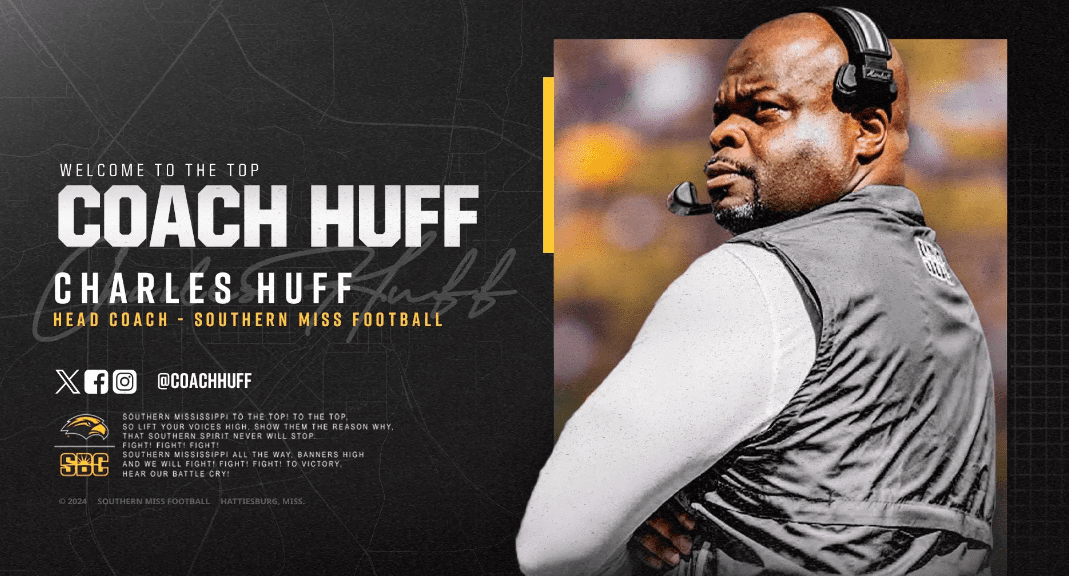RELEASE:
FOUR YEARS OF STUDENT-CENTERED EDUCATION REFORM
Imagine if you were boarding an airplane and the captain said that only 75 percent of the passengers would arrive safely. As for the poor travelers, that number would drop to 50 percent. And if you had a disability, you would board a different, poorly maintained plane, and not even a quarter of those passengers would arrive safely.
If this was the status quo for air travel, we would demand change. Yet sadly, this has been the education status quo in Mississippi for decades. And yet, until recently, critically-needed, student-centered reforms were stalled. Even under the strong leadership of then Governor Haley Barbour and then Lt. Governor Phil Bryant, education reforms were regularly killed in the House under then Speaker Billy McCoy. But all this changed in 2011 when Republicans won control of the House for the first time since Reconstruction, while maintaining the Governor’s Mansion and the Senate, Finally, Republicans had near total control of the policymaking levers of state government.
These last four years, under the leadership of Governor Phil Bryant, Lt. Governor Tate Reeves, and Speaker of the House Philip Gunn, Mississippi has enacted a wide array of strong, student-centered education reform measures that rival what any other state in the nation has done during the same time. The legislative battles for these reforms has not been easy. Too many people and organizations have a vested interest in keeping things the way they are. But courageous legislators like Senators Gray Tollison, Nancy Collins, and Michael Watson, and Representatives John Moore, Carolyn Crawford, Charles Busby, Brad Mayo and others have championed legislation that empowers parents and works to ensure that every child in Mississippi has access to quality education options.
Great Progress
Here is a look at a few of the transformational education reforms passed during the past four years:
A-F Grading: In 2012, the legislature infused our system of grading schools and school districts with a new level of transparency and accountability. A-F labels were a critical first step in giving parents a better understanding of their schools’ academic performance. Under the old system, parents had to decipher whether “Academic Watch” or “Low Performing” was worse or whether “Star” or “High Performing” was better. The new A-F system is easily understood: we all know that an “A” is good and an “F” is bad.
The A-F system is about both transparency of student outcomes, as well as transparency of student growth. And we should be proud that Mississippi now has one of the most transparent systems of measuring and reporting on student outcomes in the entire country.
High academic standards are critical for the success of our students and to ensure we prepare them to compete in a global marketplace. Time and time again, students demonstrate that they have a remarkable ability to succeed (and exceed expectations) when we set the bar high. With Common Core hopefully on the way out, we look for the state to adopt even higher standards, and those standards should clearly have Mississippi’s priorities intact.
Third Grade Reading Gate: In 2013, the legislature adopted the Literacy-Based Promotion Act, or more commonly referred to as the “Third Grade Reading Gate,” to end the practice of social promotion to the fourth grade for students who cannot read. In actuality, despite the label, the goal of the policy is to create multiple avenues to ensure that children do read on grade level by the fourth grade, the time in education when students transition from learning-to-read to reading-to-learn. Mississippi’s law does exactly that, but it also provides accountability for the small number of students who still cannot read on grade-level before fourth grade.
This legislation, which passed with overwhelming bi-partisan majorities at the time, was based upon the sound evidence that children who cannot read on grade level by fourth grade begin a cycle of falling behind and are much more likely to drop out of high school, and experience a spiraling set of consequences that often lead to unemployment and incarceration.
This was modeled after legislation in Florida, which had been adopted a decade earlier. During this time period, Florida students, particularly African American, Hispanic, and students with disabilities, have seen considerable gains as the number of students scoring at the lowest achievement level on the statewide reading assessment dropped dramatically.
This law has two critical components: the gate; students don’t proceed to the fourth grade if they can’t read, and intervention; students who are struggling with learning to read receive intensive intervention to help them strength their reading skills and prepare for the fourth grade. One component without the other wouldn’t work. But when combined, these two components help children get the support they need before being passed on to the next grade.
Charter Schools: Charter schools are public schools that receive government funding, but are freed from some of the red tape and restrictions placed on traditional public schools. In exchange for that freedom, these schools are held to a higher academic standard.
Passing a law to allow local communities to create charter schools was one of the highest priorities for the new Republican majority in 2012. Previously, Charter school legislation had repeatedly passed the Senate, but was always killed by Speaker McCoy in the House. Most observers assumed charter schools would pass in 2012 since it was so important to the republican leadership. But a group of house Republicans, led by the Desoto County delegation, teamed up with Democrats to kill this legislation and deny communities across the state the ability to provide their children with this much-needed education option.
Supporters regrouped after the defeat in 2012 and early in the 2013 session, legislation allowing for the creation of charter schools passed the House and Senate and was signed into law by Gov. Phil Bryant. This law creates a rigorous and accountable process to ensure that only the highest quality charter schools will be authorized. This fall, the first two charter schools are starting in Jackson, one in South Jackson and one in Midtown. We are enthusiastic about both efforts and anticipate life-changing results from both of these schools.
Special Needs ESA: Mississippi was late to the game in enacting charter schools (40 states already had charter schools), but we are the third state in the nation to implement Education Scholarship Accounts (ESAs). The Equal Opportunity for Students with Special Needs Act passed during the 2015 session and will provide parents who have a child with special needs with an ESA of $6,500 to help pay for expenses outside the traditional public schools. These funds can be used to cover expenses such as private school tuition, therapy, or tutoring. Governor Bryant has been an outspoken advocate for this bill and has committed to sign the bill soon.
Similar to the legislative fight for charters, this bill was not passed the first year it was introduced. A special needs ESA bill was introduced in 2014, but a coalition of House members, including many of the same members who teamed up to kill charter schools legislation, joined together to defeat this measure on the last day of the 2014 legislative session. We are disappointed that it took an extra year, but we applaud policymakers for this strong piece of legislation that will be a lifeline to children who have special needs and are floundering in public schools that don’t meet their unique educational needs.
This program is a gigantic leap forward for Mississippi. It treats students as individuals, with unique needs, and equips parents with the tools to help them meet those needs. No one knows a child better than their parents, so this program empowers parents of students with special needs with the ability to customize an education that they determine is right for their child.
Going Forward
Much has been accomplished to reform our last in the nation education system, but there is still much to do. Our work isn’t done until every parent in Mississippi has a range of high-quality education options and the ability to choose an education that they determine is right for their child, whether at a traditional public school, charter school, or private school. So what’s next?
Tax Credit Scholarships: Tax Credit Scholarship programs create new pools of funding so that children can receive scholarships to attend the private schools of their parents’ choice. Corporations and individuals make private donations to nonprofit organizations that provide these scholarships to eligible children from low-income families. In return, the corporations and individuals receive a state income tax credit. Similar laws in other states have proven to yield multiple benefits, including better educational outcomes for the students who accept the scholarships, better outcomes for those students who opted to stay in traditional public schools, and significant savings to taxpayers.
Charter School Expansion: We expect to see great things from the charter schools opening in Jackson this fall. We support expanding the current law to provide more students with the same great opportunity.
Currently, students who wish to enroll in a charter school are prohibited from crossing district lines. This is not a significant issue in a large district like the Jackson Public School District, but this is a significant challenge for those communities in lesser populated areas who want to create a charter school. This is particularly true in the Delta where the population is low and individual counties already have multiple school districts. Restricting charters from recruiting students from across district lines has effectively eliminated the possibility of communities creating charters in most other parts of the state.
KIPP (Knowledge Is Power Program), who runs 162 highly successful charter schools around the country, including the Arkansas Delta, was interested in helping Clarksdale, Mississippi create a charter school. But they chose not to come to Mississippi because of the limited pool of students that would be available without crossing district lines. This restriction hurts the students in those areas where it is needed the most.
Additionally, the 2013 charter schools law effectively restricts the creation of charters to only those districts rated D or F. We support allowing for the creation of charter schools in “C” districts because students deserve better than a mediocre education. If a local community wants to create a charter and charters are able to provide better academic results, why should we keep them out of “C” districts?
Appointed Superintendents: Of the more than 14,000 school districts in the United States, only around 150 have elected superintendents. And about 60 of those are in Mississippi.
On multiple occasions, the legislature has tried to pass legislation that would create a unified system where all school board members are elected and all superintendents are appointed. During the past four years, this legislation repeatedly passed the Senate, but was killed in the House, again, thanks to the same coalition that has defeated or delayed many much-needed reforms.
Superintendents should be focused on their students, not campaigning. A switch to elected school boards and appointed superintendents would increase accountability and have a positive impact on the classroom, especially in our more rural areas where the need is greatest and the talent pool of qualified candidates is the smallest.
This Year
Elections provide an opportunity to reflect on the past and consider progress that still needs to be made. For the Governor, Lt. Governor, Speaker, and the legislators who championed these student-centered education reforms, they have a remarkable record to run on. For the legislators who worked to defeat these measures and deny families access to quality education options, they too have a record, and a day of reckoning with the voters is coming.
When we released our education choice scorecard in October our goal was to provide a tool for citizens to evaluate their legislators’ voting record on these critical reforms. Now it’s never been easier to determine whether your legislators stand with students and families or whether they support the status quo and superintendents.
This year we created Empower PAC to support legislators who have consistently and courageously supported these student-centered reforms, many in the face of strong political threats. If you’re a legislator who has consistently stood up for children, then you can be assured, we’ve got your back. At the same time, we look forward to supporting candidates who are running against those that stood in the way of these reforms. The voters of Mississippi will ultimately set the direction for the future.
The future of our state is a lot brighter than it was four years ago. Now let’s work together through this year’s elections and the next four years to push even further, to ensure that every child in Mississippi has the opportunity to choose a quality education.
4/9/15








